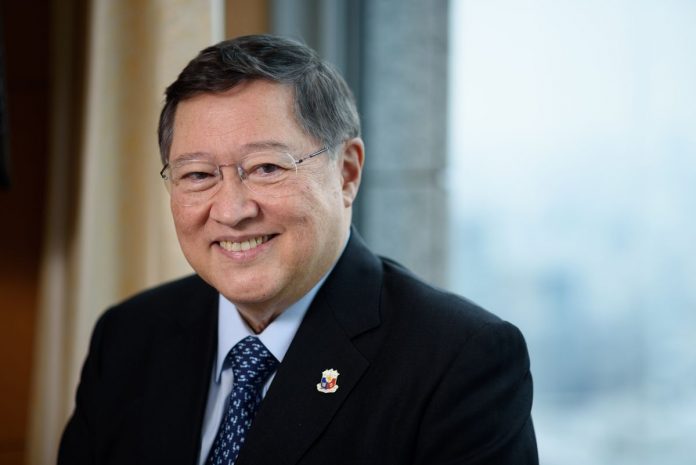
MANILA – The Department of Finance’s decision to suspend the second tranche of excise tax increase on petroleum products was prompted by oil futures at $80 per barrel.
Finance secretary Carlos Dominguez III on Monday said the Department of Finance (DOF) is sticking with its recommendation to suspend the second tranche of excise taxes on fuel products.
Dominguez noted the DOF recommended suspending temporarily the increase in excise taxes on petroleum products scheduled in 2019.
“The first week of October, the future prices of fuel … the futures were over 80 dollars (per barrel) and we decided that on that basis, we will make the decision to recommend not to implement the increase, so we will stick to that recommendation,” he explained.
Oil futures are financial contracts under which the buyer and seller agree to trade in crude oil at a predetermined future date and price.
Members of the administration’s economic cluster recommended earlier this month that President Rodrigo Duterte temporarily suspend the January 2019 oil excise increase under the Tax Reform for Acceleration and Inclusion (TRAIN) law.
The suspension was announced by Presidential Assistant to the President Christopher “Bong” Go on October 14, and was confirmed by Finance Assistant Secretary Antonio Lambino II the same day.
Enacted President Rodrigo Duterte in December 2017, the TRAIN law expanded the value-added tax (VAT) base and reduced personal income taxes starting January this year.
Under the law, excise taxes on diesel fuel were hiked by P2.50 per liter this year, from zero, and on gasoline by P7.00 per liter.
The law also provides that under the second tranche starting 2019, the excise taxes on diesel will be hiked by P4.50 and on gasoline by P9.00.
The increase, however, could be temporarily suspended should the average price of Dubai crude reach or exceed $80 per barrel for three consecutive months.
Recently, however, global prices of fuel products have declined to prices below $80 per barrel.
Dominguez earlier said that the government expects to incur P41 billion in foregone revenues due to the planned suspension of excise tax increases.
The Development Budget Coordination Committee (DBCC) has since put up a task force to look into projects which could be postponed or canceled.
“The DBCC decided to put a task force to look at items that we can cancel or postpone,” said Dominguez.
“For instance, non-essential travel by government, that’s number one. Number two, replacement of vehicles,” he said. (GMA News)







